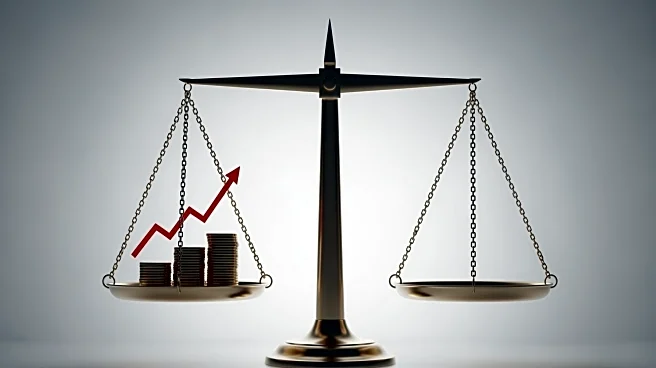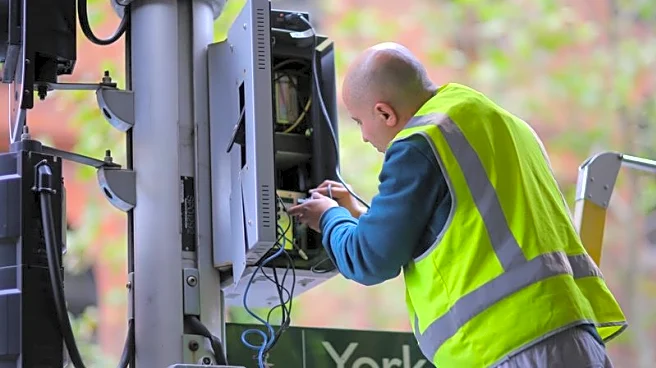What's Happening?
British households are experiencing rising energy bills despite a significant drop in wholesale power and gas prices. The discrepancy is attributed to increased taxes, grid charges, and policy costs associated with renewable energy initiatives. The UK
government is under pressure to address these rising costs as Chancellor Rachel Reeves prepares her budget amid expectations of tax hikes. The government argues that the transition to cheaper renewables will eventually lower bills, but the upfront costs are currently being borne by households. Network upgrades and policy costs are contributing to the higher bills, with significant investments needed to support the transition.
Why It's Important?
The rising energy bills in the UK highlight the challenges of transitioning to renewable energy sources. While the government promises long-term savings, the immediate financial burden on households could lead to political backlash. The situation underscores the complexity of balancing environmental goals with economic realities. The increased costs could affect consumer spending and economic growth, as households allocate more of their budget to energy expenses. The government's handling of this issue could influence public opinion and voter sentiment, especially as the country navigates economic uncertainties.
What's Next?
The UK government is expected to continue advocating for renewable energy expansion, promising future savings. However, immediate relief measures may be necessary to alleviate the financial strain on households. The upcoming budget announcement by Chancellor Reeves could include adjustments to tax and climate levies to address affordability concerns. The government may also face pressure to accelerate infrastructure investments to reduce costs more quickly. Stakeholders, including energy companies and consumer advocacy groups, will likely engage in discussions to find solutions that balance environmental goals with economic impacts.
Beyond the Headlines
The energy transition in the UK raises ethical questions about the distribution of costs and benefits. While the shift to renewables is environmentally beneficial, the financial burden disproportionately affects lower-income households. The government must consider equitable solutions to ensure that the transition does not exacerbate social inequalities. Additionally, the reliance on electricity for heating and other needs highlights the need for diversified energy sources to prevent over-dependence on a single type of energy. The situation also reflects broader global challenges in achieving sustainable energy transitions.
















